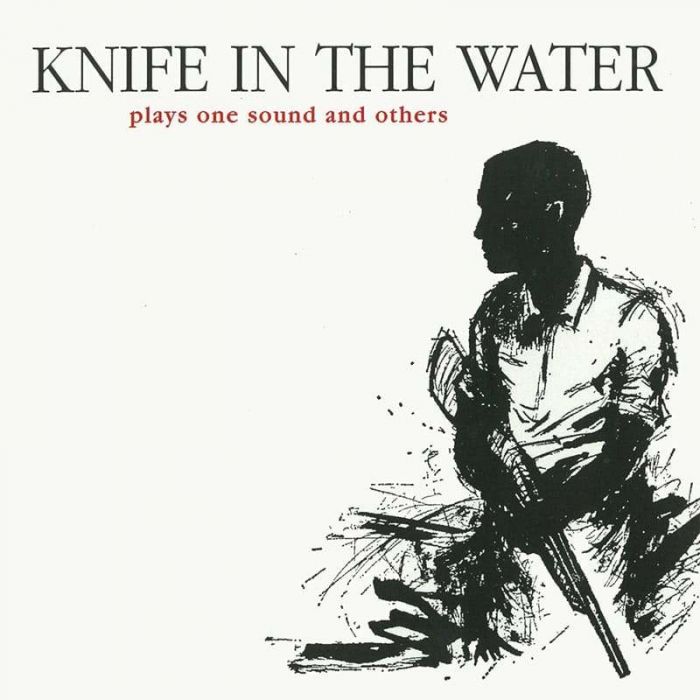Plays One Sound and Others by Knife In The Water (Review)

I suppose it might be somewhat counterproductive to review an album that A) came out 5 years ago and B) is not that easy to get a hold of. But Plays One Sound and Others, Knife in the Water’s self-released debut, is just too good to not mention, regardless of age or availability. It’s worth reviewing in hopes that just one or two people will take the time and effort to track it down (or just e-mail the band for a copy), because the effort is worth it.
Plays One Sound and Others opens with the 9-minute “One Sound,” which introduces one of the band’s defining aspects. That would be the organ work of Laura Krause (who also serves as the band’s co-vocalist). On here, her organ sounds like it has one foot in the Church and the other in some B-grade horror movie. After “One Sound,” the other elements that make Knife in the Water’s music so grand make their entrance, those being the dusty, weary harmonies of Krause and Aaron Blount and Bill McCullough’s jaw-dropping lap steel.
Indeed, the two often go hand in hand, especially on a track like “Seat of Pity.” Blount and Krause sing of panthers, tigers, and abortions while McCullough’s lap steel literally weeps in the background, adding weight and conviction to the lyrics.
It’s really impossible to discuss Knife in the Water without delving into the band’s colorful and powerful lyrical imagery, courtesy of Blount’s pen. His lyrics are often beautiful and disturbing, and usually both in the same song. That may not always be apparent at first, as it’s easy to get caught up in the band’s rich tapestry of sound or to lose your way in Blount’s many cryptic turns of phrase. But with repeated listens, the imagery begins to take root and bloom, and when combined with the band’s delivery, evokes feelings of nostalgia and heartache while often turning your stomach at the same time.
For example, “Married Woman” opens with “Married woman Elizabeth/Hermaphrodite that I can’t forget” and goes on to sing of a horrific traffic accident. Delivered in Blount’s dry vocals, they almost sound tongue-in-cheek. But Krause’s spectral organ enforces a reverent, even gospel-like atmosphere during passages that tell of faces slashed by windshields and mouths shattered on dashboards. “Come On Cotton” is another song of note, as Krause’s organ dances around Blount’s breezy guitar and breathy vocals. Again, despite the song’s rather jaunty nature, the lyrics paint a different picture, with Blount finally concluding at song’s end that “I can’t walk at all without alcohol.”
However, the album’s finest moment, where all of Knife in the Water’s elements come into perfect balance would have to be “I Sent You Up.” The song’s lyrics, which tell of murder, dismemberment, and guilt in the finest murder ballad tradition, are sure to raise some eyebrows once they sink in. But in stark contrast to the lyrical content, the music is absolutely gorgeous and soaring. Blount and Krause’s vocals have never sounded better, especially on the chill-inducing chorus (“So I sent you up, but the angels turned you down/And the Devil already had you so he turned you right back around”), and McCullough’s lap steel is subtle yet effective.
It’s this rare gift for blending the grotesque and the lovely that makes Knife in the Water’s music worth tracking down and writing about. Thankfully, the rest of the band’s catalog isn’t terribly hard to find, but rumor has it their upcoming release may be a Europe-only affair. But based upon the music they’ve released so far, I have faith that one will be worth tracking down as well, even it means looking across the sea.